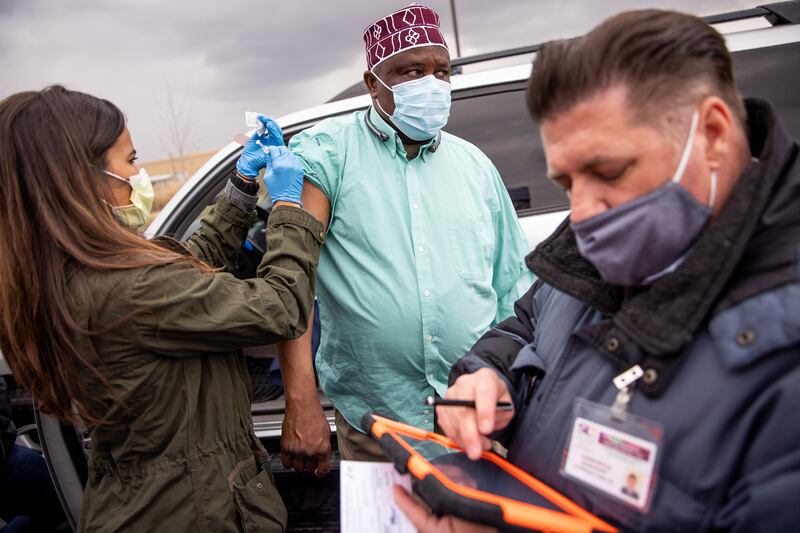SALT LAKE CITY — As vaccinations against COVID-19 continue to ramp up in the state, University of Utah Health researchers are scrambling to sign up people with the virus to see whether a decades-old antidepressant can prevent hospitalizations and even deaths.
So far, about 300 people who have tested positive for the coronavirus have enrolled in the trial, part of a national effort to determine whether fluvoxamine, a low-cost generic drug primarily used to treat obsessive-compulsive disorder, will live up to promising preliminary results as a treatment for COVID-19 symptoms.
Dr. Adam Spivak, assistant professor in the infectious diseases division, said the hope is for 1,100 COVID-19 patients to participate in the University of Utah Health trial that started in January, but they’re getting harder to find as case counts continue to drop in the state.
He encouraged COVID-19 patients to join what is described as a contactless study that won’t require them to leave their homes by enrolling at stopcovidtrial.wustl.edu. The study, recently featured on “60 Minutes,” is based at Washington University in St. Louis.
More than a year since the start of the pandemic, vaccines are available but there’s still not “an effective, easy to take by mouth therapy for people who get COVID to keep them from getting sick. And that’s a huge gap in our arsenal,” Spivak said.
Faster-spreading variants of the coronavirus that have caused shutdowns in parts of Europe have already reached Utah and other parts of the United States, and Spivak said he fears new strains will develop that are resistant to the existing vaccines.
“We’ve spent a lot of time these days thinking about vaccines. We’d love to prevent the disease. But people are still getting COVID and they still will until we get enough people vaccinated,” the doctor said. “So we need to address this.”
Spivak said because fluvoxamine appears to target the body’s inflammatory response to COVID-19 rather than the virus itself, the drug should help patients no matter what new strains develop and could be used to treat other emerging coronaviruses.
He said previous trials showed no one taking the antidepressant became sick enough to be hospitalized and all fully recovered, including workers at a California racetrack hit by a COVID-19 outbreak. Fluvoxamine, still used in Europe, is a selective serotonin re-uptake inhibitor like Prozac and newer antidepressants.
Friday, the Utah Department of Health reported 453 new coronavirus cases and three additional deaths from the virus that occurred before March 1. There have now been 383,713 positive COVID-19 cases in Utah, and the death toll has reached 2,091, with 130 people currently hospitalized with the virus.
The three deaths reported Friday are a Millard County woman between 45 and 64 and a Davis County man between 45 and 64, who were both hospitalized at the time of their deaths, and a Weber County man, between 45 and 64, who was not hospitalized when he died.
Utah has now administered 1,262,108 total vaccine doses, a daily increase of 29,117.
The rolling seven-day average for positive tests is 418 per day. The rolling seven-day average for percent positivity of tests is 3.8% when all results are included and 7.4% when multiple tests by an individual within the past 90 days are excluded. A total of 16,782 tests for the virus were administered since Thursday, and 6,095 Utahns joined the more than 2.3 million who have been tested since the pandemic began.


